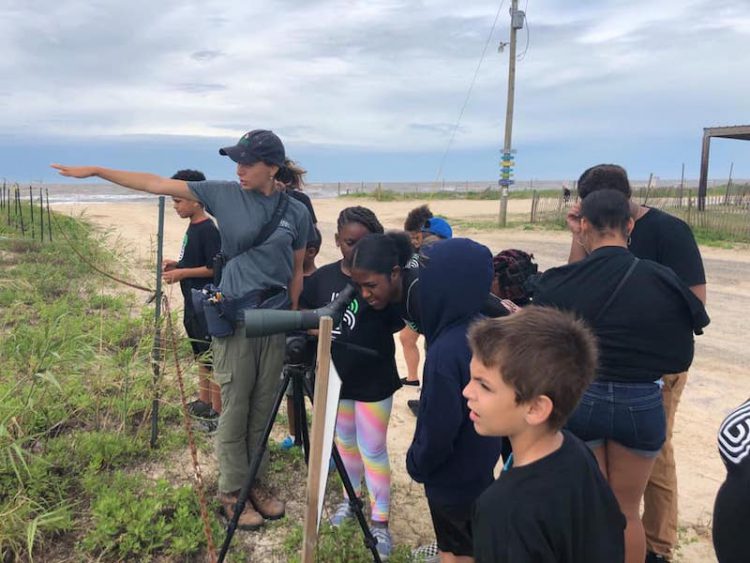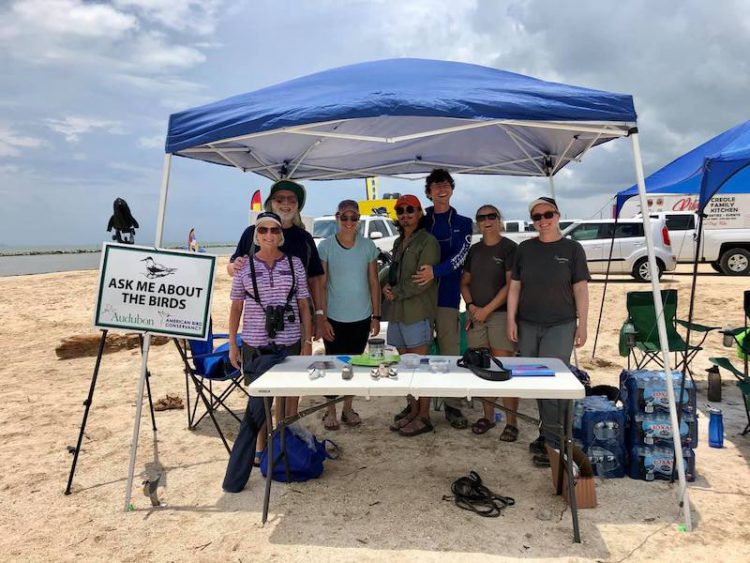Full Title: Designing effective stewardship and post-restoration management plans through co-production to protect vulnerable Gulf of Mexico coastal birds
This project identified uncertainties around the effects of coastal bird stewardship and habitat management actions.
Lead Investigator: Nicole L. Michel, National Audubon Society, Nicole.Michel@audubon.org
Natural Resource Managers: Abby Darrah (Audubon Delta), Jeff Gleason (U.S. Fish and Wildlife Service), Erik Johnson (Audubon Delta), and Amanda Phillips (Edward Wisner Donation Trust)
Federal Program Officer/Point of Contact: Frank Parker (frank.parker@noaa.gov)
Award Amount: $99,758
Award Period: September 2021 – August 2023
Why it matters: Coastal breeding birds have experienced dramatic population declines over the last 50 years. Coastal birds are highly susceptible to human disturbance and habitat loss — both of which have been identified as major threats to shorebirds and seabirds across the northern Gulf. Coastal bird conservation plans have recommended increasing stewardship efforts among researchers and natural resource managers to reduce human disturbance, and prioritizing management that increases the conservation value of beaches. This project will inform conservation decision making by quantifying and reducing uncertainties around the effects of specific stewardship and habitat management actions on populations of coastal birds in the Gulf.
What the team did: The project team conducted a review of the literature to summarize the effects of stewardship and management actions on coastal birds across the Gulf. They conducted two workshops in which researchers and natural resource managers identified knowledge gaps and prioritized hypotheses for future research. They used Structured Decision Making tools to quantify the uncertainty around each hypothesis and the feasibility of reducing that uncertainty and providing valuable guidance to resource managers, then developed a research proposal to evaluate the selected hypotheses.
Summary of outcome: The project team built the Western Gulf Stewardship Task Force, a team of experienced resource managers, decision makers, researchers, and conservation professionals. Together this team identified the most relevant and feasible hypotheses to test that would inform coastal bird management. This team received funding from the Science Program in 2023 to investigate the relative efficacy of coastal bird stewardship activities and community-wide education and outreach campaigns to reduce the impacts of human disturbance and protect coastal-breeding bird populations.
Not applicable
May 14, 2025 – New Evidence Reveals Coastal Birds Need Both Stewardship and Restoration, Audubon
Apr. 21, 2025 – Coexistence at the confluence: addressing human-related threats to coastal birds on the northern Gulf of Mexico, Association of Field Ornithologists
Not applicable
 Official websites use.gov
A .gov website belongs to an official government organization in the United States.
Official websites use.gov
A .gov website belongs to an official government organization in the United States.
 Secure .gov websites use HTTPS
A lock or https:// means you’ve safely connected to the .gov website. Share sensitive information only on official, secure websites.
Secure .gov websites use HTTPS
A lock or https:// means you’ve safely connected to the .gov website. Share sensitive information only on official, secure websites.

